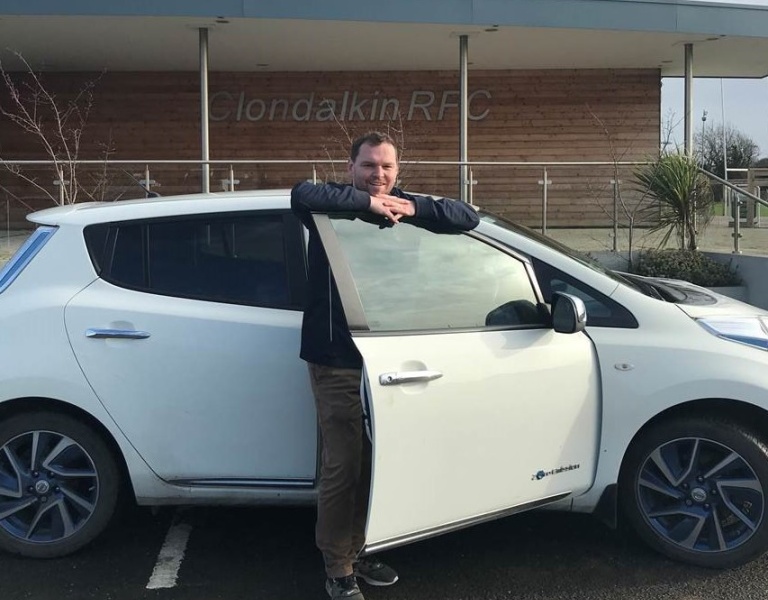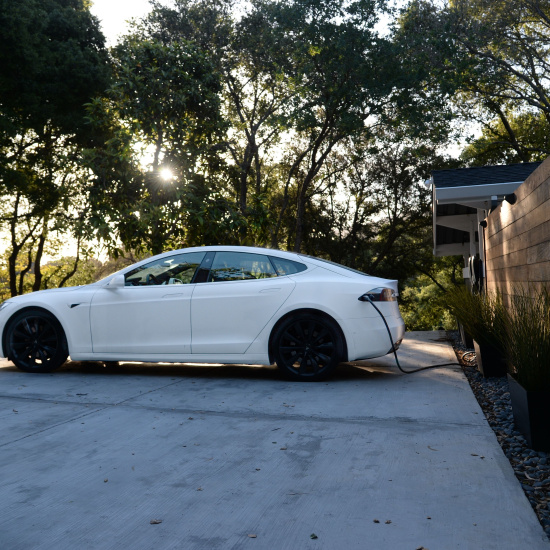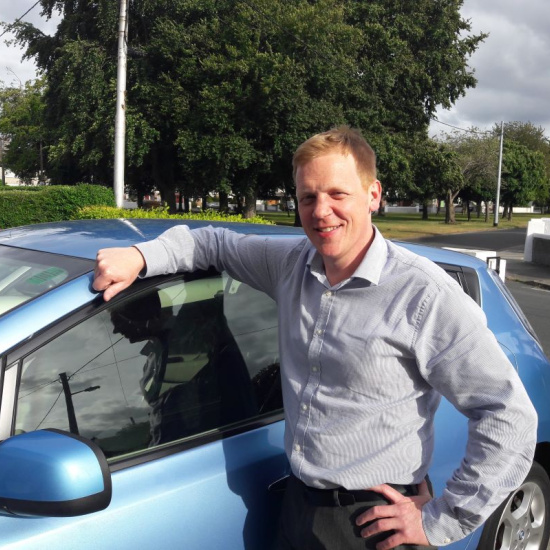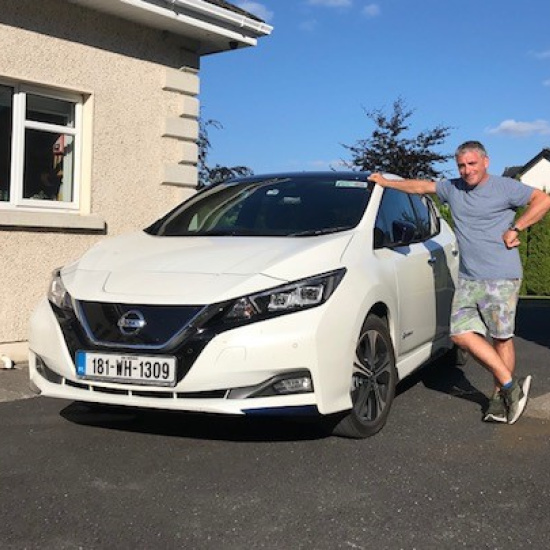Home-Chargers a 'Game Changer' for Electric Vehicle Drivers
For Derek Murtagh, an engineer in a large biologics company in North Dublin, sustainability is a huge part of his life. The part-time rugby coach lives in an A-rated home, is married to an environmental scientist and drives an electric car.
Why Derek switched from a petrol car to an EV

When his old petrol-powered Volkswagen Golf started having engine problems about two years ago, it was the perfect time to start looking for his first electric car.
"A parent of the rugby team I coach told me not to be afraid of getting a second-hand electric car. The range of 2015 cars are good enough for people who live and work in the cities. I do very little journeys outside of Dublin so never really have problems with making sure it is charged," he tells us.
Derek invested in a second-hand Nissan Leaf about two years ago and vows never to drive anything other than electric.
"I'm really happy now. The first few weeks driving an electric car take a bit of adjusting but I can't see myself ever buying anything other than electric from here on in," the engineer declares.
"I had to drive a petrol car on holiday last month and it started giving me a headache after a few hours," he adds.
"I mainly use the Leaf for work and getting to rugby events. I'm a coach, referee and sometimes a player these days."
"Getting a home-charger was a real game changer. We had so much peace of mind knowing we had a personal point to charge the car. I use the vehicle almost every day of the week, usually travelling in the region of 100km."
Benefits of driving an EV
The two main benefits of driving electric for Derek are cost savings and feeling like he's doing his bit for a sustainable future.
"It was costing me €40 a week in petrol with my last car so about €1500 a year in fuel and probably another €1500 in tax and servicing. Versus €10 in additional electricity bills a week for my electric car. I also get 75% or 50% off my M50 tolls so that saves another €500", he reveals.
"I've learned to make sure I've enough charge before leaving the house and that driving 10km slower saves significant charge," he adds.
The challenges
The main challenge for Derek has been range anxiety and making sure he has enough charge in the car before leaving the house. No longer reliant just on public charge points, electric vehicle owners can enjoy peace of mind thanks to the availability of the home-charger.
"We are getting charge points installed at work in the next few months so I will get preferential parking anytime I charge the car," he admits.
"Getting a home-charger was a real game changer . We had so much peace of mind knowing we had a personal point to charge the car. I use the vehicle almost every day of the week, usually travelling in the region of 100km," he tells us.
Adding that, "the infrastructure is greatly improving but I much prefer to ensure I'm fully charged at home before taking long journeys."
"I've driven from Dublin to Gorey and Portlaoise a few times. The first time to each location was stressful as I knew I needed to use a supercharger on the way and was hoping they were not broken or that there was a big queue at the charger."



